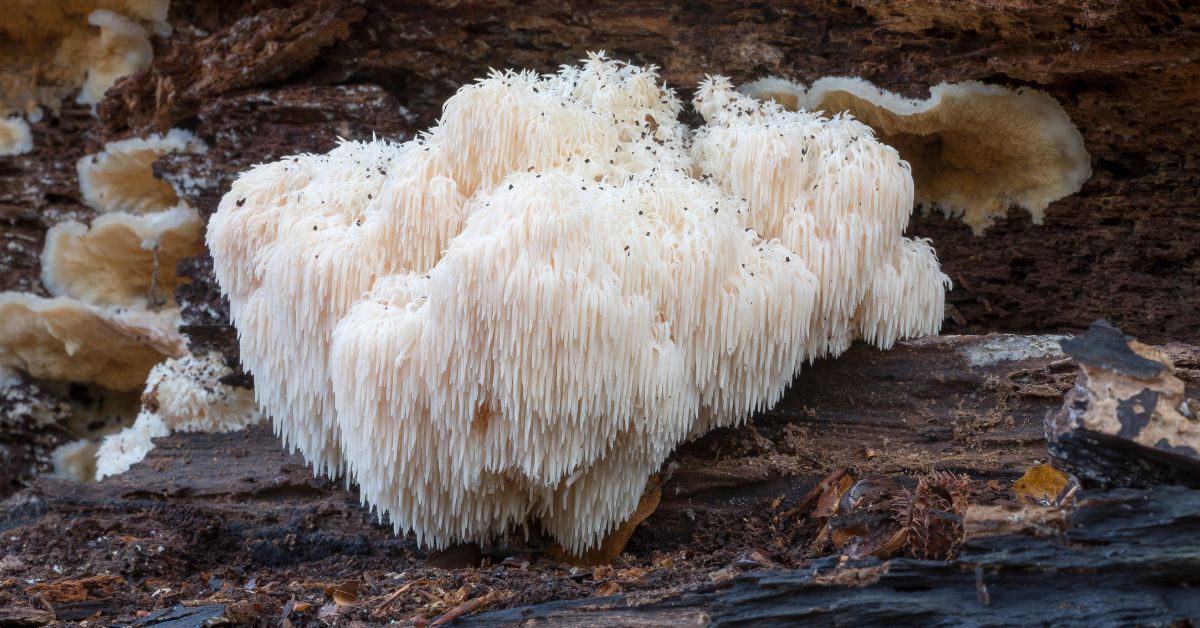
· By Oscar Diaz
Is Lion's Mane Good for the Brain? Exploring Its Cognitive Benefits
Lion's mane mushroom (Hericium erinaceus), recognized for its distinctive appearance and esteemed status in traditional medicine, has garnered significant attention for its potential cognitive benefits. This article delves into the scientific evidence supporting lion's mane as a natural enhancer of brain health.
What is Lion’s Mane Mushroom?
Lion’s mane is a medicinal mushroom traditionally used in Asian medicine. Beyond its culinary uses, it’s now a favorite in nootropics and natural health circles, praised for its potential to enhance brain function, reduce cognitive decline, and even support mental clarity.
The secret lies in its bioactive compounds, especially hericenones and erinacines, which are believed to stimulate the production of Nerve Growth Factor (NGF), a protein critical for brain health and neural repair.
How Does Lion's Mane Benefit the Brain?
-
Promotes Neurogenesis (Brain Cell Growth)
- Studies suggest lion's mane can encourage neurogenesis, the process of forming new neurons. This is crucial for learning, memory, and overall cognitive resilience.
-
Protects Against Cognitive Decline
- Research highlights lion's mane as a potential tool to combat neurodegenerative diseases like Alzheimer’s and Parkinson’s. Its NGF-boosting properties may help slow down the deterioration of neurons associated with these conditions.
-
Supports Memory and Focus
- Regular use of lion's mane may improve memory recall and focus by enhancing communication between neurons. Some users report sharper mental clarity within weeks of supplementation.
-
Reduces Anxiety and Depression
- Emerging evidence indicates that lion’s mane may support mental health by alleviating symptoms of anxiety and depression. This could be due to its role in promoting neural health and reducing inflammation in the brain.
Scientific Evidence Supporting Lion’s Mane for Brain Health
-
Cognitive Function: A 2009 Japanese study found that older adults with mild cognitive impairment who took lion's mane extract for 16 weeks showed significant improvements in cognitive function compared to the placebo group.
-
Nerve Repair: Animal studies reveal lion’s mane’s ability to regenerate damaged nerves, further solidifying its reputation as a neuroprotective powerhouse.
-
Mental Health: A small 2010 study observed reduced anxiety and depression symptoms in participants consuming lion's mane cookies daily over four weeks.
How to Use Lion's Mane Mushroom
Lion’s mane is available in various forms, including:
- Powder: Perfect for adding to smoothies, teas, or coffee.
- Capsules: Convenient for daily supplementation.
- Tinctures: A concentrated extract for quick absorption.
- Fresh or Dried Mushrooms: For culinary enthusiasts, adding lion’s mane to soups, stir-fries, or tea can be a delicious way to reap its benefits.
When purchasing lion's mane supplements, ensure they are made from fruiting bodies (not mycelium) for maximum potency. Look for organic, third-party tested products to guarantee quality.
Are There Any Side Effects?
Lion’s mane is generally well-tolerated. However, some individuals may experience mild digestive upset or allergic reactions. As with any supplement, consult your healthcare provider before starting, especially if you’re pregnant, breastfeeding, or on medication.
Incorporating Lion's Mane into Your Routine
For those seeking a convenient and enjoyable way to integrate lion's mane into their daily regimen, mushroom-infused coffee blends offer a delightful solution. Products like MushJava's Mushroom Coffee Brew combine premium Arabica coffee with lion's mane and chaga mushrooms, delivering a rich, smooth flavor alongside potential cognitive benefits. This fusion not only enhances mental clarity and focus but also provides sustained energy without the jitters commonly associated with regular coffee.
Final Thoughts: Is Lion’s Mane Good for the Brain?
Absolutely! With its unique ability to promote neural growth, protect against cognitive decline, and support mental clarity, lion’s mane mushroom stands out as a natural brain booster. Whether you’re looking to enhance focus, protect your brain as you age, or support your mental health, this ancient remedy is worth considering.
If you’re new to lion’s mane, start small, be consistent, and watch as your brainpower blossoms with the help of this incredible mushroom.
Ready to try lion's mane? Let us know your experience with this brain-boosting fungus in the comments below!